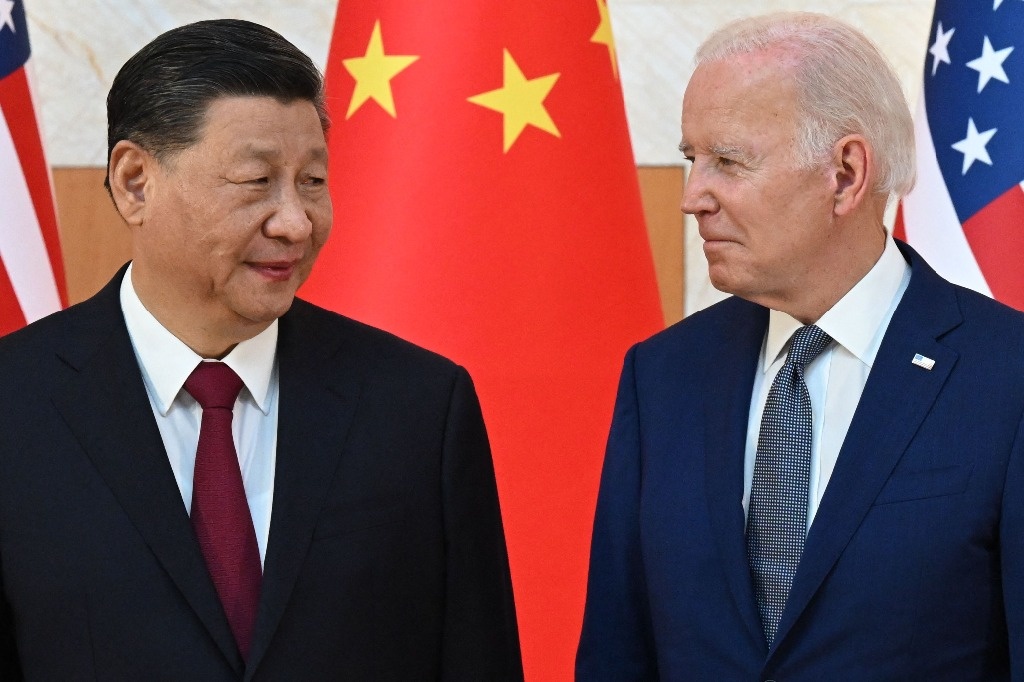Washington. The president of the United States, Joe Biden, and his Chinese counterpart, Xi Jinping, spoke by telephone this Tuesday about Taiwan and its technological rivalry, in an attempt to maintain dialogue despite the tensions between the two superpowers.
It is the first direct conversation between the two leaders since a November summit in California, marked by a thaw in tone, if not in the long-term rivalry between the world’s two largest economies.
It has been a “sincere and profound exchange” on matters of common interest, estimated the Chinese state broadcaster CCTV.
In a statement, the White House said the conversation focused both on possibilities for “cooperation” and “differences.”
The US Secretary of the Treasury, Janet Yellen, will go to China “in the coming days” and the head of US diplomacy, Antony Blinken, “in the coming weeks” to continue the dialogue, a White House official announced.
The purpose of the dialogue was not to make “announcements”, but rather “an assessment” after the California summit, he said.
China and the United States went through a period of very strong tension in early 2023, when a Chinese balloon flew over American territory.
“Intense diplomacy”
“Intense competition requires intense diplomacy to manage tensions, address misperceptions and avoid unwanted conflicts. And this call is one way to do that,” explained the official, who requested anonymity.
Despite the thaw, no rapprochement is evident in the official press releases published by both parties.
Especially when it comes to Taiwan.
Biden “underscored the importance of maintaining peace and stability across the Taiwan Strait, as well as the rule of law and freedom of navigation in the South China Sea,” following the recent incidents, the White House said.
In the phone call, Xi told Biden that Taiwan remains an “insurmountable red line” for China, according to the official Xinhua news agency. “We will not allow separatist activities or external interference supporting the ‘Taiwan independence’ forces to go unchecked,” he declared.
China claims sovereignty over Taiwan, a self-governed island that Beijing considers part of its territory.
Washington supports it militarily, but opposes any forcible change to the status quo.
Biden also expressed “concern” about the economic and industrial support Beijing is offering Moscow, according to the White House.
Technological restriction
“Over time we have really seen the People’s Republic of China begin to help rebuild Russia’s defense industrial base,” depleted after the invasion of Ukraine, he said.
Another tricky issue is the restrictions that Washington imposed on some cutting-edge technological exports to China.
Xi Jinping considers it an attempt to undermine his country’s technological development and told his counterpart that Beijing will not “stand by” in the face of these restrictions.
The Chinese president emphasized that “the United States has launched an endless series of measures to suppress China’s economy, trade, science and technology, and the list of sanctions against Chinese companies is getting longer,” according to Xinhua.
The warning has not penetrated his interlocutor.
The United States “will continue to take necessary actions to prevent advanced American technologies from being used to undermine” national security, Biden told him, according to the White House.
Beyond the issues of tension, China and the United States intend to continue cooperating whenever possible, according to the commitment made at the November summit.
The US official mentioned in particular cooperation in artificial intelligence and the fight against drug trafficking, as well as the desire to reestablish regular military communications.
#Biden #talk #Taiwan #technological #rivalry #reduce #tension
– 2024-04-08 08:02:13
